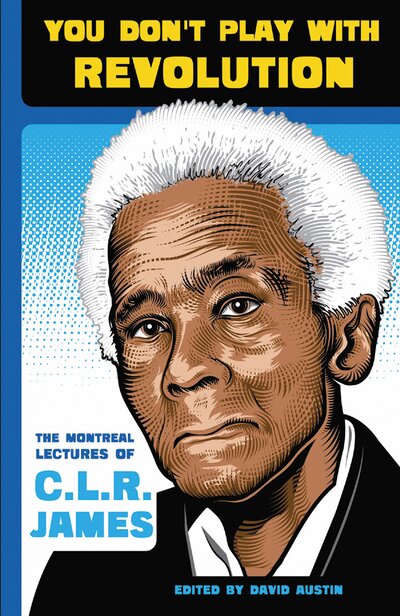You Don’t Play With Revolution: The Montreal Lectures of C. L. R. James

Edited by David Austin
(AK Press, 2010)
Reviewed by Ernesto AguilarRenowned as an anti-colonial theorist, intellectual and political activist, C. L. R. James has written books that represent some of the most daring anti-capitalist works of the 20th century. He is best appreciated for pushing readings of Marx beyond what even Marx himself may have originally envisioned. Presentations on capitalism, Negritude and revolutionary strategy employed by Caribbean militants made James an arresting voice, his words at once coming with measured tones and scholarly authority. Through the book You Don’t Play With Revolution, editor David Austin advances some of the more fearless theoretical and practical ideas to the delight of anyone curious about a pragmatic idealist like James.
C. L. R. James came to political prominence in a period of important insurgencies, among which the Caribbean was a part. James, born in Trinidad, worked intimately with fellow travelers in the region and postulated a movement building theory that liberally built on Marx while expanding upon the colonial experience of the Third World. Austin, a journalist and writer who profiled James for the Canadian Broadcasting Corporation, presents James in letters, lectures and interviews as an organizer clear on the political moment at hand and eager to take it on. James writes warmly to compatriots about investing his time and energy into organizing resistance and winning elections. However, it is James as theorist that is You Don’t Play With Revolution’s real treasure.
What many readers will surely find fascinating are the ways James reviews Marx and his expositions on the legacy of Lenin. Though both men have immeasurably contributed to hundreds of movements, James offers a fresh understanding of them as people tied to practical realities of struggles in their day. Lenin, he reminds us, had faith in the Bolsheviks developing a world in which all workers had a say. Utopian indeed, as James effacingly concedes, but the alternative would be criticized as Trotsky’s abstractionism and then later be played out in Stalin’s pessimism in the potential for party members to achieve the socialist ideal. As Austin demonstrates, James threw his lot in with socialism, but his socialism had more in common with the October Revolution than totalitarianism. In discussing the Caribbean experience, James makes his view clear that capitalism in a postcolonial world will only lead to further divisions between haves and have nots, and converting the idea of free will into one controlled by markets.
Those familiar with key James works like Notes on Dialectics and The Black Jacobins will discover a thinker whose signature ability to tie the multi-disciplinary into common bonds of struggle is strong and present here. However, those intrigued by James’ skill as a political organizer long before the Internet made communication instant will be gratified to learn about the ways he believed work on the grassroots and beyond needed to be conducted, and how vast the positioning of ideology to activism needed to be to ensure victory. However, many can best soak in from You Don’t Play With Revolution the mind that influenced the ways we think and how we see our potential for freedom.

Tue, Jun 8, 2010
Human Rights, Labor, Publication Reviews